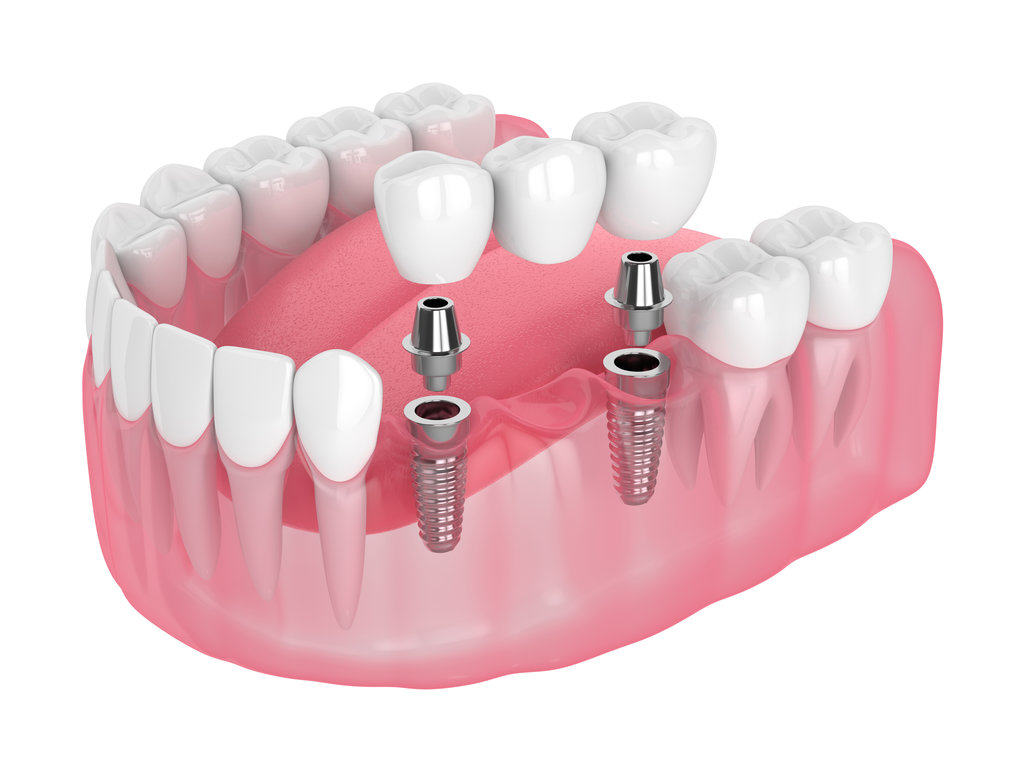
Dental implants offer long-term benefits compared to traditional tooth replacement options, providing permanent solutions that preserve jawbone health while delivering natural function and appearance for decades. While bridges and dentures may seem less expensive initially, implants often prove more cost-effective over time due to their durability and the fact they don’t require replacement or frequent adjustments like other options.
At St. Augustine Oral & Facial Surgical Center, Dr. Douglas L. Johnson and our team help patients make informed decisions about tooth replacement by explaining the long-term advantages of each option. Our AAAHC-accredited facility combines advanced implant techniques with comprehensive care to ensure you receive the most appropriate solution for your individual needs and goals.
Understanding Your Tooth Replacement Options
When facing tooth loss, you have several replacement options, each with distinct advantages and limitations that affect your long-term oral health and quality of life. These include the following:
- Traditional dentures
- Dental bridges
- Dental implants
Dentures sit on top of your gums and rely on suction, adhesives, or clasps for retention. Bridges connect to adjacent teeth for support, requiring modification of healthy tooth structure. Dental implants replace both the tooth root and crown, integrating directly with your jawbone to function like natural teeth.
Understanding these fundamental differences helps you evaluate which option aligns best with your lifestyle, health goals, and long-term oral health needs. Each approach affects your daily life differently and carries distinct maintenance requirements and longevity expectations.
Durability and Longevity Comparison of Dental Implants vs. Other Tooth Replacement Options
Dental implants demonstrate exceptional longevity, with success rates exceeding 95% and many lasting a lifetime with proper care. The titanium implant post fuses with your jawbone through a process called osseointegration, creating a permanent foundation that doesn’t deteriorate over time like natural tooth roots might.
Traditional dentures typically require replacement every five to eight years due to changes in your mouth shape and normal wear. Partial dentures may need adjustments more frequently as they can affect adjacent teeth and gum tissues. Full dentures often become loose over time as the jawbone naturally shrinks without tooth root stimulation.
Dental bridges generally last 10 to 15 years before requiring replacement, though the supporting teeth may develop problems that necessitate earlier intervention. The bridge design places additional stress on the anchor teeth, which can lead to complications requiring more extensive treatment later.
Oral Health and Bone Preservation Benefits of Choosing Dental Implants
One of the most significant long-term advantages of dental implants is their ability to preserve jawbone structure. When you lose a tooth, the underlying bone begins to deteriorate due to a lack of stimulation from the tooth root. This process, called resorption, continues throughout your life and affects your facial appearance and oral health.
Dental implants provide the stimulation your jawbone needs to maintain its density and structure. This preservation prevents the sunken facial appearance that often develops with long-term denture wear and maintains proper support for your remaining teeth.
Traditional dentures and bridges cannot prevent bone loss because they don’t replace the tooth root. In fact, dentures may accelerate bone loss in some areas due to pressure and movement against the gum tissues. This bone loss can make future tooth replacement more challenging and expensive.
Daily Life Improvements You’ll Experience With Dental Implants
Living with dental implants eliminates many daily inconveniences associated with other tooth replacement options. You’ll never worry about denture adhesives failing during important moments or food getting trapped under removable appliances.
Unrestricted diet: Eat corn on the cob, apples, nuts, and other challenging foods without concern.
- Natural speech patterns: Speak clearly without clicking, whistling, or slurred pronunciation common with loose dentures.
- Simplified oral hygiene: Regular brushing and flossing replace special cleaning solutions and complicated techniques.
- Enhanced social confidence: No more worrying about denture movement, bad breath, or embarrassing moments.
- Better sleep quality: Sleep comfortably without removing appliances or concerns about displacement.
- Maintained facial structure: Preserve your natural appearance and prevent the sunken look from bone loss.
These functional improvements significantly impact your quality of life and social interactions, benefits that compound over years and decades of use.
Comprehensive Dental Implant Care in St. Augustine, Florida
When considering dental implants, choosing an experienced oral and maxillofacial surgeon ensures optimal results and long-term success. Dr. Douglas L. Johnson brings board certification from the American Board of Oral & Maxillofacial Surgeons and specialized fellowship training in facial cosmetic and reconstructive procedures to every implant case. His additional board certification from the National Dental Board of Anesthesiology ensures comfortable, safe implant placement under IV sedation for your comfort.
Our St. Augustine practice maintains AAAHC accreditation, demonstrating our commitment to the highest standards of surgical care and patient safety. We provide comprehensive implant treatment from initial consultation through final restoration, ensuring continuity of care throughout your treatment journey. Contact St. Augustine Oral & Facial Surgical Center at (904) 460-0505 or reach out through our contact form to schedule your implant consultation and learn more about how dental implants can provide lasting benefits for your oral health and quality of life.